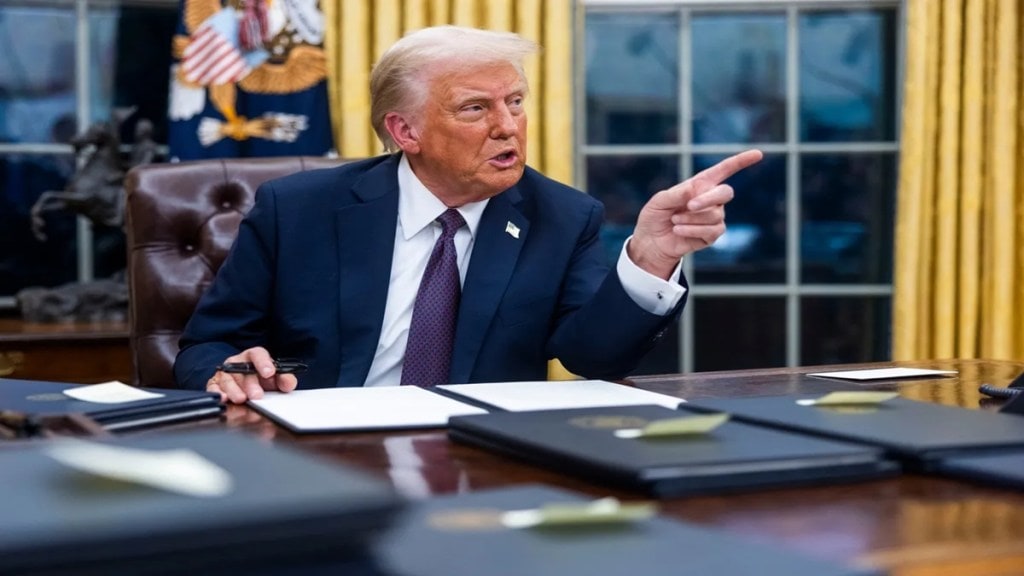An internal whistleblowing memo has accused the BBC of manipulating a speech by US President Donald Trump. According to The Telegraph, a 19-page internal dossier submitted by a former member of the BBC’s standards committee, Michael Prescott, claims that a Panorama episode broadcast a week before the US election “was completely misleading.” The edits allegedly made it appear as though Trump encouraged supporters to start a riot at the US Capitol on January 6, 2021. It spliced together separate parts of Trump’s speech to create a negative impression, the memo suggests.
A BBC spokesperson told The Telegraph: “While we don’t comment on leaked documents, when the BBC receives feedback it takes it seriously and considers it carefully.” The statement added, “Michael Prescott is a former adviser to a board committee where differing views and opinions of our coverage are routinely discussed and debated.”
What the Panorama episode showed
🔴 EXCLUSIVE: The BBC is accused of editing a Trump speech to make him seem to back the Capitol riot.
— The Telegraph (@Telegraph) November 3, 2025
A whistleblower memo says Panorama “completely misled” viewers by cutting key lines
Watch @gordonrayner’s full breakdown ⬇️ pic.twitter.com/A6nngI44Ll
The Panorama special, Trump: A Second Chance?, aired on October 28 last year. In the programme, Trump appeared to tell voters, “We’re gonna walk down to the Capitol and I’ll be with you and we fight. We fight like hell and if you don’t fight like hell, you’re not gonna have a country anymore.”
However, the memo claims this was not what Trump actually said. The first half of that sentence, “We’re gonna walk down to the Capitol and I’ll be with you,” came 15 minutes later in his speech, while the second part, “We fight like hell…,” was delivered nearly 40 minutes later.
In reality, Trump’s original words were allegedly more tempered. He told supporters: “We’re gonna walk down, and I’ll be there with you, we’re gonna walk down, we’re gonna walk down any one you want but I think right here, we’re gonna walk down to the Capitol and we’re gonna cheer on our brave senators and congressmen and women,” according to the memo.
The BBC version also reportedly omitted a key line where Trump urged his crowd to act peacefully, saying, “I know that everyone here will soon be marching over to the Capitol building to peacefully and patriotically make your voices heard.”
The report states that Panorama combined these clips and added ominous background music, followed by footage of flag-waving protesters marching toward the Capitol.
The whistleblower also detailed another instance of alleged distortion. The Panorama film suggested that members of the Proud Boys, a far-right group, began marching toward the Capitol after Trump’s speech. However, Prescott said the footage used by the BBC was actually recorded before Trump began speaking.
“It was completely misleading to edit the clip in the way Panorama aired it,” he added. “The fact that Mr Trump did not explicitly exhort supporters to go down and fight at Capitol Hill was one of the reasons there were no federal charges for incitement to riot.”
The sequence created the impression that the crowd was responding directly to Trump’s supposed “call to arms”, even though that footage was filmed before his speech began, the memo reveals.
Prescott alleged that his repeated warnings about misleading edits in the film were “dismissed or ignored” by the corporation. The dossier, titled “BBC Bias”, was sent to the network’s governing board.
Prescott wrote in the letter: “I departed [from the advisory role] with profound and unresolved concerns about the BBC…my view is that the Executive repeatedly failed to implement measures to resolve highlighted problems, and in many cases simply refused to acknowledge there was an issue at all.”
Criticising BBC’s senior controller of news content, Jonathan Munro, and the chief executive of BBC News, Deborah Turnes, he said, “I have been surprised at just how defensive Deborah and Jonathan in particular have been whenever issues are raised. Firm and transparent action plans to prevent the re-occurrence of problems are in short supply – and so, as you can see, errors are repeated time and again.”
Who is Michael Prescott?
Michael Prescott is a former adviser to the BBC’s Editorial Guidelines and Standards Committee. Prescott spent three years as an independent external adviser to the broadcaster’s Editorial Guidelines and Standards Committee (EGSC), according to Telegraph. He left his role in June. During his time as a former journalist he worked in a series of corporate advisory roles.

